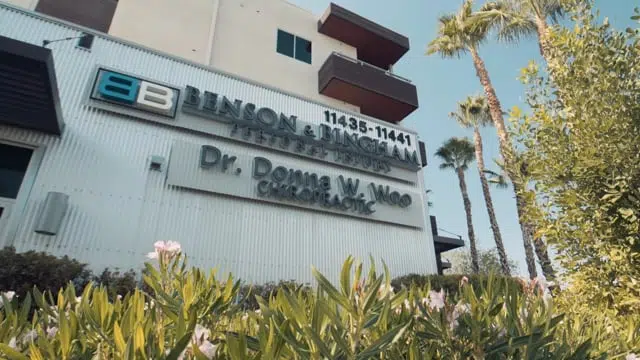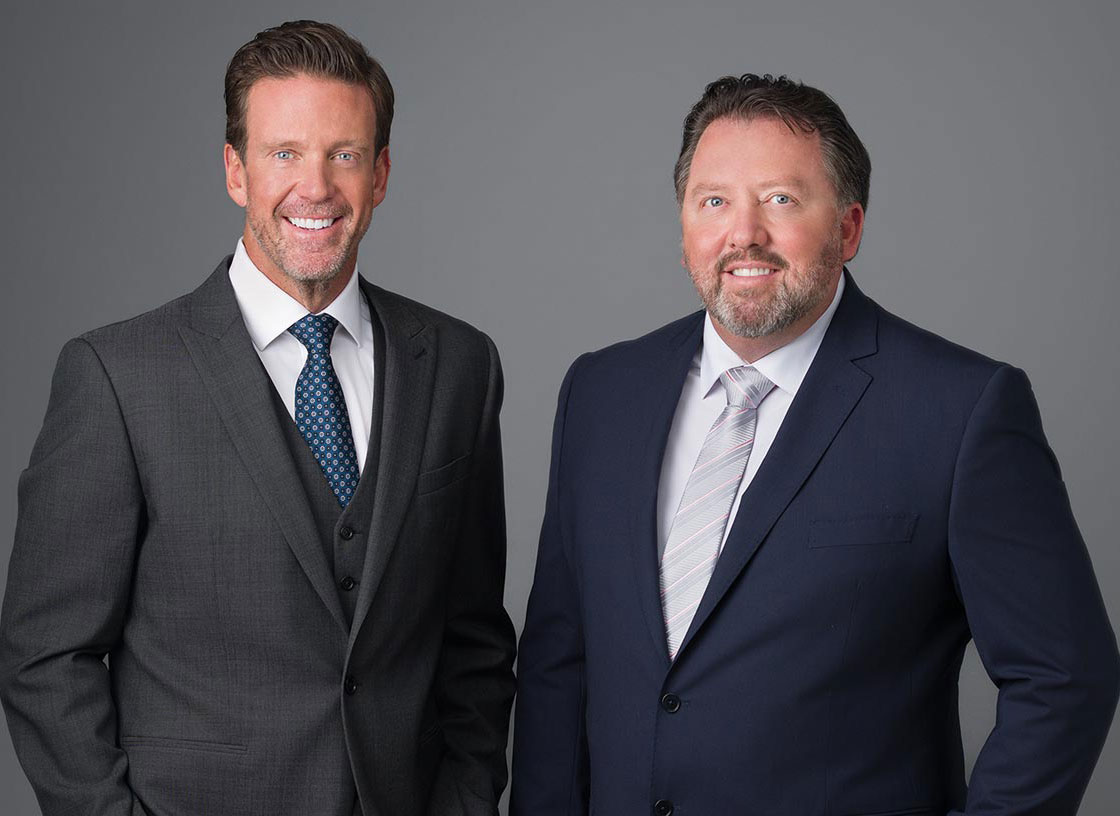Nevada Workers’ Compensation Lawyer

Nevada’s Laws on Workers’ Compensation
If you suffer an on-the-job injury, the Las Vegas Workers’ Compensation Lawyers can help you secure compensation for the full cost of your injuries. Workers’ compensation is designed to help workers after an injury. Still, many employees don’t realize what benefits are available to them or how to pursue a personal injury lawsuit in Las Vegas if their rights are not adequately addressed.
Every state has different laws when it comes to workers’ compensation. These laws outline workers’ rights as well as their responsibilities and also detail certain obligations that all employers have to their employees. Every year, millions of Americans are injured on the job. According to the U.S. Department of Labor, there were over 2.8 million non-fatal workplace injuries in 2017. Often, these injuries cause workers to miss time from work, causing them to suffer tremendous financial strain and stress.
In Nevada, an employer is required to hold workers’ compensation insurance if it has one or more employees. When an employee is hurt on the job, that person has seven days to report the injury. At this point, the employer has six days to file a report with the appropriate insurance company. The insurance company then has 30 days to either accept or deny the claim.
Table of Contents
If your workers’ compensation claim has been denied, the legal team at Benson & Bingham Accident Injury Lawyers, LLC can help you determine whether you have the right to appeal. Moreover, we can help you with the application, greatly reducing the likelihood of a denial and the need to go through an appeal.
Common Injuries
Depending on where you work and what you do, workplace injuries can range from minor cuts and scrapes to serious life-threatening injuries. That’s why it’s important to know your rights when it comes to filing a workers’ compensation claim. If you have questions regarding a Nevada workplace injury, an experienced attorney can help. Common workplace injuries include:
- Repetitive stress injuries: Repetitive stress injuries are some of the most common on-the-job injuries in Nevada. While commonly associated with office positions and skilled trades, repetitive stress injuries, like carpal tunnel, are common among hospitality workers, specifically card dealers. Carpal tunnel occurs when pressure is put on the median nerve in the wrist, causing pain and numbness. Physical therapy and medication can help these injuries, but in some cases, injured individuals may need surgery.
- Sprains, strains, and tears: Your muscles and ligaments support your bones and allow you to move. A sprain occurs when the ligaments connecting your joints are overextended. While a sprain affects the ligaments, a strain affects the muscles. In many cases, strains and sprains will heal on their own, requiring limited medical intervention. If the injury results in a tear, a doctor may recommend physical therapy, medication, or surgery.
- Traumatic brain injuries: A traumatic brain injury (TBI) occurs as the result of a sudden hit or penetrating wound to the head. This can cause the person to lose consciousness. In some cases, symptoms of a TBI may not present until days after the injury. While many TBIs go away with no lingering effects, in some cases, a person may experience dizziness, headaches, memory problems, or sensory issues.
- Broken bones: Broken bones are often the result of a fall or a crush injury. For minor injuries, the break may heal on its own. For more severe cases, the patient may require surgery. A broken bone can cause long-term pain and can affect mobility.
Compensation for Your Injuries
If you suffer an injury on-the-job, seek compensation for your injury. That said, workers’ compensation is not a personal injury claim. You cannot sue your employer for negligence. Nevada’s laws outline compensation available to injured employees. While the amount you receive will depend on the specific circumstances of your case, some of the most commonly included damages include:

- Medical bills: Under Nevada law, your employer has the right to choose which physicians you may see after an injury. In some cases, your employer may allow you to choose your doctor. As long as you visit an authorized physician and follow the doctor’s recommendations, 100 percent of your medical care will be covered by your employer’s insurance. This includes doctor visits, medical transportation, surgeries, medication, and rehabilitation.
- TTD or TPD: Temporary total disability (TTD) covers lost wages if your injury causes you to miss at least five consecutive days from work. The amount that you will receive in TTD will be equal to two-thirds of your average monthly wage. You will continue to receive this amount until the doctor clears you to return to work. If the doctor recommends you return to work on light duty or part-time, you may be eligible for temporary partial disability (TPD). These payments are meant to offset any lost income due to your partial disability.
- Vocational rehabilitation: In some cases, your injury may be so severe that you are unable to return to the job that you held before your injury. If this is the case, your employer may be required to provide vocational rehabilitation. Vocational rehabilitation is designed to help you find a new job that will pay you a similar wage to what you were making pre-injury. This training may include college, technical school, or special courses.
- Disability (PPD or PTD): At some point in your care, your doctor will determine that you are medically stationary. This means that they do not foresee your condition getting any better or worse. At this point, the doctor will give you a disability rating that will be used to calculate your permanent partial disability (PPD) or permanent disability (PTD).
Nevada Workers’ Compensation FAQ
Contracting an occupational illness or suffering injuries on the job not only causes physical pain but can lead to severe emotional and financial distress. The vast majority of Nevada employers, and employers across the nation, must carry workers’ compensation insurance that provides benefits when an employee gets injured or sick in the workplace.
If you have begun the workers’ comp claims process, or you have been injured recently on the job, or a loved one suffered a fatal workplace injury, then you likely have numerous questions about workers’ compensation in Nevada. Although some workers can manage a simple workers’ comp claim on their own, many benefit from discussing their workplace injury or illness during a free consultation with Benson & Bingham Accident Injury Lawyers, LLC’s qualified attorneys.
In the meantime, below we answer some of the most frequently asked questions we receive about Nevada workers’ compensation.
My injury didn’t happen at work. Am I still covered under workers’ compensation?
The geographic location of where your injury or illness happened matters less than whether it happened in the course of your employment. As long as your injury or illness arose in connection with your job, your employer-provided workers’ compensation insurance should cover its costs. For example, if you were injured while traveling for work, running a company errand, or attending a mandatory work-related social gathering, you may have the right to benefits under your employer’s workers’ comp policy.
How long do I have to file a workers’ compensation claim in Nevada?
Once you have been injured or discovered an occupational illness or disease, Nevada law requires you to inform your supervisor/employer within seven days in most instances. You have 90 days from your date of injury to file a workers’ comp claim.
In Nevada, filing a workers’ compensation claim requires visiting a doctor for the injury or illness, telling the doctor your condition relates to your work, and having your doctor fill out an official form (known as Form C-4 “Employee’s Claim for Compensation/Report of Initial Treatment”).
Nevada law considers the claim validly filed once your doctor has signed the form and sent copies to the insurance company and your employer within 90 days from the date you were injured or the date you noticed illness related to your job.
How does workers’ compensation calculate my temporary disability benefits in Nevada?
Workers who have missed five days of work within 20 days because of a work-related illness or injury become eligible for temporary disability benefits to cover their lost wages. Typically, a workers’ comp insurer calculates those benefits by examining your previous 12 weeks of pay to determine your average monthly wage. Payments typically equal two-thirds of that average monthly wage, but cannot exceed the 150 percent of the state average monthly wage.
How long do I have to wait to receive my workers’ compensation benefits?
If your employer’s workers’ compensation carrier approves your claim, it has 30 days from the date it received notification of your injury to begin paying benefits. If your claim is not approved, you have the right to appeal.
What situations disqualify me from receiving workers’ compensation benefits?
Workers’ compensation covers you against the cost of workplace injuries and illnesses. For the most part, benefits do not depend on how an injury or illness happened or who caused it. However, a few situations can prevent you from collecting benefits, such as:
- You intentionally harmed yourself.
- You were under the influence of drugs or alcohol when your injury occurred.
- You sustained an injury or illness while committing a crime.
If a workers’ compensation insurance company denies your claim for any of these reasons, then contact an experienced Nevada workers’ compensation attorney as soon as possible to determine the best path forward for your situation.
What should I do if my employer doesn’t have workers’ compensation insurance?
Nevada law requires virtually all employers to carry workers’ compensation insurance, so generally, that should not happen. If it does, you should still seek medical treatment for your work-related injury or illness. Also, submit a C-4 form and have your doctor complete it, and tell your doctor that you are not sure whether your employer carried workers’ comp insurance.
The Workers’ Compensation Section of Nevada’s Division of Industrial Relations (DIR) can investigate your employer’s status to determine whether the employer should carry workers’ comp, and if so, what consequences your employer should face. In the meantime, you may have the right to file a claim with the DIR for benefits paid out of the state’s Uninsured Employer’s Account.
Can my employer fire me because I filed a workers’ compensation claim?
No, your employer cannot fire you because you file a workers’ compensation claim. Retaliation for exercising rights to workers’ comp benefits is against the law and can give you the grounds to sue your employer. If you feel your employer terminated you (or you suffered any other sort of negative job consequence) in retaliation for filing a workers’ comp claim, speak with an experienced Nevada attorney right away.
The insurer closed my workers’ compensation claim. Can I reopen it?

Sometimes your condition changes after the workers’ compensation insurance carrier closes your claim. Nevada law entitles you to request that the insurer reopen your claim for additional benefits and medical treatment. You need to make your request in writing to your claims representative and provide a written statement of your need for more medical treatment from your doctor.
According to Nevada’s Department of Business and Industry, your doctor’s letter must state the following:
- Your injury or condition has worsened or changed since your claim was closed.
- You need additional medical treatment.
- A description of your doctor’s plan of treatment.
- A direct relationship exists between your worsened state and your original injury or illness.
- Your work injury or illness is the primary reason for the need to reopen your claim.
Nevada law does provide some limitations on reopening a closed workers’ compensation claim. They include:
- Retired workers who were injured can only receive additional medical treatment, not lost wages.
- If your request to reopen is denied, you cannot make another request for one year.
- If you did not miss any work because of your initial injury and received no permanent disability benefits, you have to request to reopen your claim within one year of closure.
- If your initial medical expenses were less than $300, you likely cannot reopen your claim.
Contact Benson & Bingham Accident Injury Lawyers, LLC to Learn More About Your Rights
After a workplace injury, it’s natural to feel confused and overwhelmed. Don’t let these feelings prevent you from getting proper care and adequate compensation. Nevada’s workers’ compensation laws are designed to protect workers in the event of an accident. An experienced workers’ compensation attorney can help you navigate the process, ensure you receive all of the benefits for which you are eligible, and advise you on the steps you need to take to get back on your feet.
If you need help with your workers’ compensation claim, the legal team at Benson & Bingham Accident Injury Lawyers is here to help. Contact our office at (702) 382-9797 or visit us online for a free consultation.
Review: 5/5 ★ ★ ★ ★ ★
“Philip Cuartas was excellent in helping me in my case. He is bilingual and answered all of my questions and always kept me up to date with the details of my case! He was very professional, I highly recommend Benson and Bingham! This is an excellent law firm. Thank you!” -Blanca O.
Free Consultation

